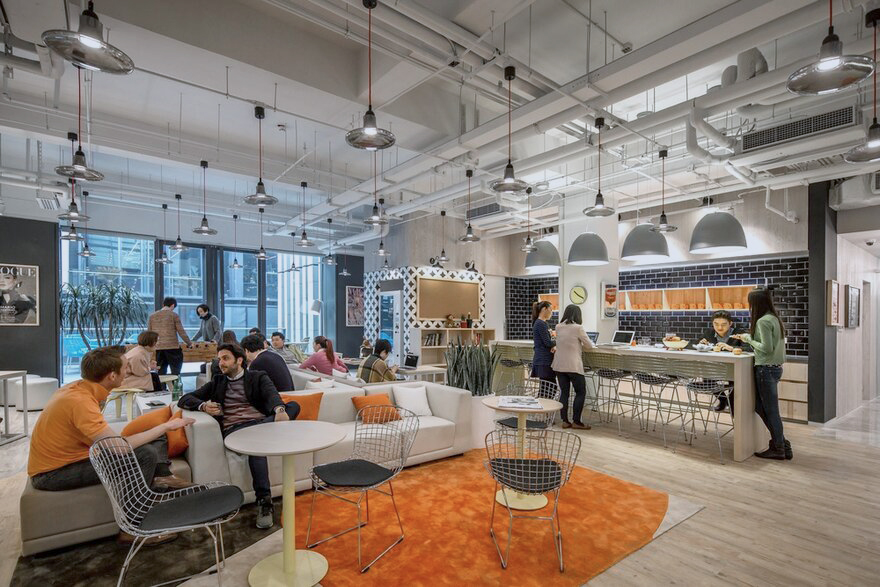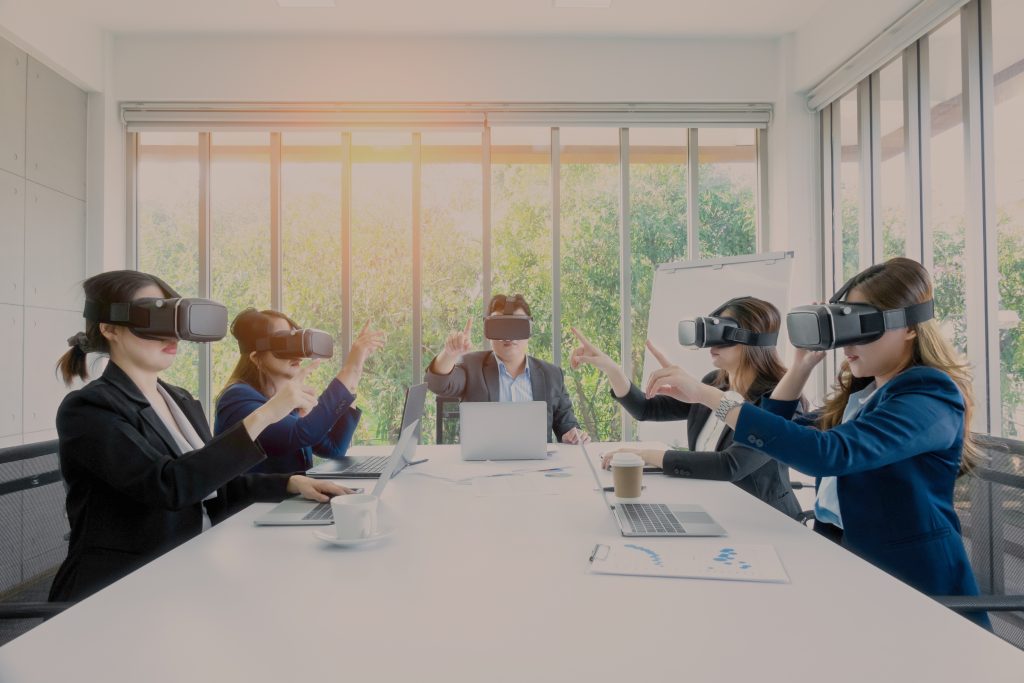Generation Z attitudes at work.
How it Should be Influencing Company Decisions Right NowGeneration-Z’s arrival in the workforce is hotly anticipated. Just as the Millennials made a splash when they first entered the workforce, this new generation of workers is gearing up to put their own stamp on the way we work.
Estimated reading time: 4 minutes, 15 seconds. Contains 853 words
 Nathan Peart is a Managing Director in our Associate Practice Group based in New York. An expert in cross-border relocation, Nathan works closely with associates to help them make lateral moves into law firms whether in New York City, on the East Coast or internationally. He is focused on providing excellent service to his law firm clients and supporting his candidates through every step of the recruitment process.
Nathan Peart is a Managing Director in our Associate Practice Group based in New York. An expert in cross-border relocation, Nathan works closely with associates to help them make lateral moves into law firms whether in New York City, on the East Coast or internationally. He is focused on providing excellent service to his law firm clients and supporting his candidates through every step of the recruitment process.
Nathan is passionate about offering advice and guidance to associates who are interested in learning about the market and have a desire to take the next step in their careers. He is a regular writer and contributor to legal and national publications, including the American Lawyer, Forbes.com and Attorney at Law magazine.
(No time to read the article? Download or set your headphones and listen to the automated podcast)
Generation-Z’s arrival in the workforce is hotly anticipated. Just as the Millennials made a splash when they first entered the workforce, this new generation of workers is gearing up to put their own stamp on the way we work.

Generation-Z’s arrival in the workforce is hotly anticipated. Just as the Millennials made a splash when they first entered the workforce, this new generation of workers is gearing up to put their own stamp on the way we work. Studies are frequently being conducted focusing on their drivers, goals, fears, and attitudes – and for good reason. Companies need to understand what this new generation is all about, and begin to think about how their views and preferences should impact key organizational decisions. Through recent interviews with Generation-Z workers who have just entered the workforce, we were able to establish some of their key attitudes and perspectives.
 Physical Office Space
Physical Office Space
Tech companies, in particular, have focused on spaces that are cool and agile, but it turns out the design of work spaces is not as meaningful for this generation. Surprisingly, companies like Facebook and Google have recently dropped down the cool employer ranks, with Hootsuite and Bain & Co taking the top spots because they have created a more engaged workforce thanks to their focus on culture, diversity, and inclusion. Both companies were highlighted for recruiting a truly diverse workforce, and for focusing on personal development. To Generation-Z, the most desirable work environment is not the one that occupies the trendiest space; rather, it lies in the intangibles that come with having a diverse and engaged workforce.
In addition, Generation-Z employees desire choice and flexibility when it comes to their working space. Not only should companies create shared spaces that allow people to come together to share views and foster personal development, but they should also consider allowing more choice and flexibility in their policies regarding where people work.
The key part of working space for Generation-Z is having choice. Generation-Z employees do not want to feel tethered to a physical office. For them, the concept of staying in one place all day every day is unnecessary to be productive and successful. They want to manage their life on their own terms and have policies in place in order to do so.
 Opportunities for Remote Working
Opportunities for Remote Working
The rise of technology has led to a sea change in how we think about remote work, and the concept has become even more popular in recent years as companies offer solutions to encourage and facilitate more virtual working. Even major corporations have been able to reduce rental costs in big cities by forcing mandatory remote working days.
Generation-Z prefers a greater divide between work and life; they focus less on friendships with colleagues in the workplace but still retain authentic interactions with them. Their views reflect their desires to find their own tribes that align with their interests. The focus is on them as an individual, rather than being part of a company’s identity.
 Their Perspective about Meetings
Their Perspective about Meetings
Generation-Z talent are digital natives, so it’s no surprise that they favor the use of technology over physical meetings. The general feeling is that meetings are too long and inefficient – they achieve nothing that couldn’t be written in a memo, email or instant messaging system.
Generation-Z prefers information to be presented in a way that allows them to process it on their own time in line with their own priorities. They find that more often than not, meetings serve as a forum for unnecessary questions that do not relate to their day-to-day work.
Companies should explore ways to facilitate communication and embrace technology to accommodate the preferences of this new generation of employees. By embracing instant messaging, video meetings and group emails, companies can give people more control over their own time – the ultimate goal for this generation.
For Generation-Z employees when in-person meetings are necessary, companies should set clear expectations for how meetings should run, and stick to the agenda. This will not only increase efficiency in the workplace, but it can also empower workers with stronger sense of ownership over their time, ultimately improving culture and engagement for the long-term.
 Recognizing Leadership
Recognizing Leadership
While Gen-Z is thought to reject a lot of social norms, there is a strong recognition among this generation that good leadership is essential for the structure and development of successful organizations. Surprisingly, Millennials and Gen-Z workers are aligned with Baby Boomers in preferring a traditional hierarchical structure and promotion based on seniority and tenure (although with a greater focus on merit for those promotions).
However, choice is key. Companies should implement varied career paths that allow individuals to choose their own directions, while still fostering an environment that values tenure and awards individuals’ efforts to build and improve a company.
Gen-Z’s arrival in the workplace is already creating murmurs for the need to change. They are more willing to ensure that work fits in with their overall lifestyle, and they are less willing to adapt to traditional norms. Organizations need to be cognizant of this when they are making long-term decisions about office space leases, staffing levels, and career paths. Gen-Z has a choice and they know it.
 Follow me on LinkedIn. Check out my website.
Follow me on LinkedIn. Check out my website.
I’m a legal recruiter with Major, Lindsey & Africa where I work closely with attorneys to guide them down their career paths toward their ultimate goals. I’ve lived all around the world—from London to Hong Kong to New York City—and have helped countless attorneys change jobs locally and abroad. I’m passionate about offering advice and guidance to people who are interested in learning about the recruiting process and have a desire to take the next step in their careers. And I hope to impart some of that advice to you through my writing.

